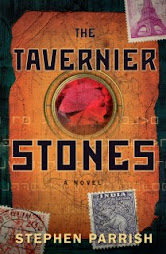The link is here. The post is below.
3 ways to kill a short story (plus, write an awesomely bad ending and win a book)
While working on a short story last night, I was stumped. Everything was written, edited and good to go, except the ending—or, more specifically, the five endings I had written, ranging from the literary drop-off (an esoteric and potentially cheesy musing about losing things) to the genre-style kick (dead body in the piano?).
Which got me thinking more about endings—what works best, and why? Here, courtesy of WD's Chad Seibert, is an excerpt from the WritersOnlineWorkshops.com course “Focus on the Short Story," on what definitely doesn't. (The next course starts March 11; click here to learn more about it.)
* * *
So how does a writer know when and where to end her story? Former STORY editor Whit Burnett says to use "pure instinct"—easier said than done. There are as many ways to end a story as there are to start one. If you want to learn how to end a story, the best thing to do is study examples. But there are at least three basic problems that you'll want to avoid:
The story that simply stops
You don't want the ending of your story to send an editor back to the envelope in search of more pages, scratching his head and wondering if he dropped part of the manuscript on the subway that morning.
Usually, when a story seems to "stop" rather than "end," it's because the story lacks a sense of resolution, of wholeness. The reader doesn’t feel like she's "gotten anywhere." She wonders what the point is.

It's useful to think of your story as making a set of "promises" to the reader. Have you raised any questions or issues that you've failed to answer? A good story does not trick or tease (at least not simply for the sake of tricking and teasing). A good story keeps its promises (which is another way of saying that a good story plays by the rules it establishes for itself).
You, as the author, will have to determine whether or not the logic of your story requires that you answer any particular question or address any particular issue. Unlike the average Hollywood movie, short stories usually aren't obligated by issues of plot so much as by issues of character.
Too much falling action
"Falling action" (also known as the resolution, or denouement) is the part of a narrative that comes after the climax, after the story's main problems have been solved—those sometimes leisurely pages where the author ties up any remaining loose strings.
As Rust Hills (Writing in General & the Short Story in Particular) points out in his chapter entitled "Ending," most short stories (unlike novels) don't require much detail about what happens "afterward." Once you've done what you need to do, don't linger. Get out of the story.
Still, sometimes we don't seem to know when enough is enough. Maybe we become attached to the worlds of our stories and don't want to leave. Maybe we're worried the reader hasn't gotten the point. Or maybe we're just putting off the daunting task of starting a new story.
Whatever the case, the problem of too much falling action is usually easy to fix. At STORY, we frequently suggested that authors snip a line or a paragraph off the end of their stories, sometimes an entire scene. More often than not, the ending was in there somewhere; it was just buried.
The atomic-bomb ending
Perhaps no part of a story invites melodrama so much as the climax (which, in contemporary stories, usually falls near the end). You want this moment to have the maximum possible impact on your reader, but the line between "maximum impact" and "fatal impact" is sometimes hard to judge.
An ending that's too "light" (one that doesn't capitalize on the story's dramatic and thematic potential) can leave a reader disappointed, not quite satisfied. But an ending that's too "hard" (melodramatic, over the top) can do even more damage, leaving a reader in disbelief, turned off, disgusted.
Err on the side of restraint. Don't treat your ending like it's your last chance to drive home the point of the story. If the rest of your story has been doing its fair share of the work, the ending needn't detonate a bomb in order to succeed.
* * *
WRITING PROMPT: Self-Destructive Actions
Feel free to take the following prompt home or post your response (funny, sad or stirring) in the Comments section below. By posting, you’ll be automatically entered in our occasional around-the-office swag drawings. If you’re having trouble with the captcha code sticking, e-mail your story to me at writersdigest@fwmedia.com, with “Promptly” in the subject line, and I’ll make sure it gets up.
Take a short piece you've written (or whip up a new one), and hack the ending off. Then, write the most awesomely bad ending you can—and see how easily you can derail the piece. I’ll choose one random commenter to win a copy of The Weekend Novelist Rewrites the Novel and the latest issue of WD magazine.
(Image: Danilo Rizzuti)





